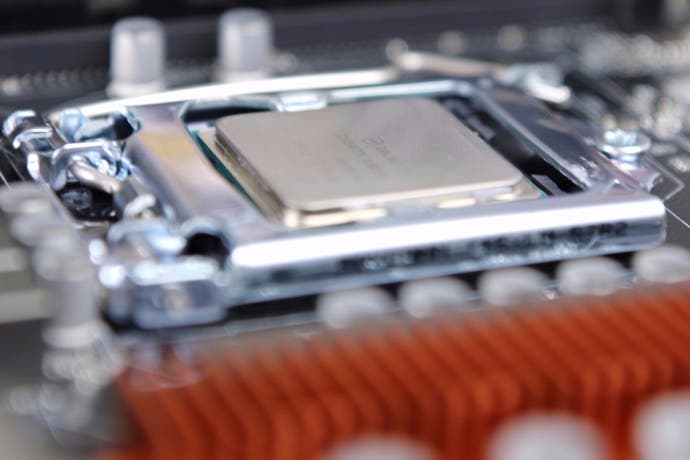Digital Foundry: the best gaming CPUs for the money
Buying recommendations for all budgets.
We've been on a mission over the last six months - to fully get to grips with the importance of the CPU in a gaming PC and that's involved benchmarking the lion's share of the processors on the market today, including a decent, representative proportion of the new Skylake line from Intel. On top of that, we've been road-testing various CPUs with each new major PC launch in an effort to understand where the sweet-spot lies in terms of price vs performance.
Having now covered two, four, six and eight-core processors from both Intel and AMD, we now feel ready to offer our recommendations for the best gaming hardware available in a range of pricing categories, with tests from CPUs costing as little as £50 all the way up to £800. Our combined results are found in this piece, and we'll be looking to update it as and when new hardware arrives.
The current state-of-the art is Intel's Skylake platform, but its successor - Kaby Lake - arrives later this year, but perhaps more exciting is AMD's return to the performance CPU sector with the upcoming debut of its Zen architecture, which we expect to see in the second half of the year. Also due is Broadwell-E - an update to Intel's top-of-the-line enthusiast platform.
So fingers crossed that we'll see a return to some plurality in the PC processor market, but in the meantime, the chances are that if you're considering a CPU upgrade you may well be running an older Intel platform - perhaps the Sandy Bridge 2500K. In which case, the video below - and its accompanying article - may prove quite interesting!
Now, it's fair to say that it is the graphics card that is the most upgraded element of a gaming PC - and we've got you covered there - but for the purposes of this piece, the focus shifts to the CPU and its job in powering gameplay. The sweet-spot in terms of price vs performance rests with Intel's Core i5 line, but each market sector has its own strengths and weaknesses.
Here's how we've divided up this guide:
- The best gaming CPU under £100 / $150
- The best gaming CPU under £200 / $250
- The fastest gaming CPU money can buy
So - what is the job of the CPU and why is it so important to gaming? Essentially, the processor works through the game logic and also prepares all the instructions for rendering the next frame to the graphics card. In effect, as you raise quality settings, generally the amount of 'things to draw' increases, which means more work for the CPU. With the move to new generation of consoles, the strain on the CPU has increased a lot with the move to more detailed environments and more realistic world simulation, to the point where it's not particularly difficult to max out a modern i3 dual-core chip or even an older quad.
How can you tell if your CPU is reaching its limits? We recommend downloading MSI Afterburner and accessing its settings. In there, you'll find the option to set up the on-screen display to measure load on each of your CPU cores. To see how easy it is to max out those cores, ramp up settings in GTA 5 or Assassin's Creed Unity, or set up a Project Cars race with the maximum allowable vehicles. Perhaps take a visit to Rise of the Tomb Raider's Village stage, or simply boot up Crysis 3 and play through the Welcome to the Jungle level.
There's a delicate balance of potential bottlenecks in any given gaming PC and while the graphics card is the primary limiting factor generally, the worst examples of hitching and stuttering do tend to occur when you are CPU-bound.
In choosing an upgrade a number of decisions need to be made:
- Can your current system move up to a faster chip like a Core i5 or i7 processor? Remember to check your board's CPU support before buying any upgrade.
- Can your motherboard handle overclocking?
- Can your board also support faster memory?
In the example of the Core i5 2500K above, we can overclock and swap in faster memory and bring the system back up to the standards required for modern gaming. Or we can push on and upgrade with a more capable Core i7 processor.
This guide is meant for those considering a more radical option - buying from scratch and constructing a whole new PC. We hope you find it useful.
- Next page: Best gaming CPU under £100 / $130


